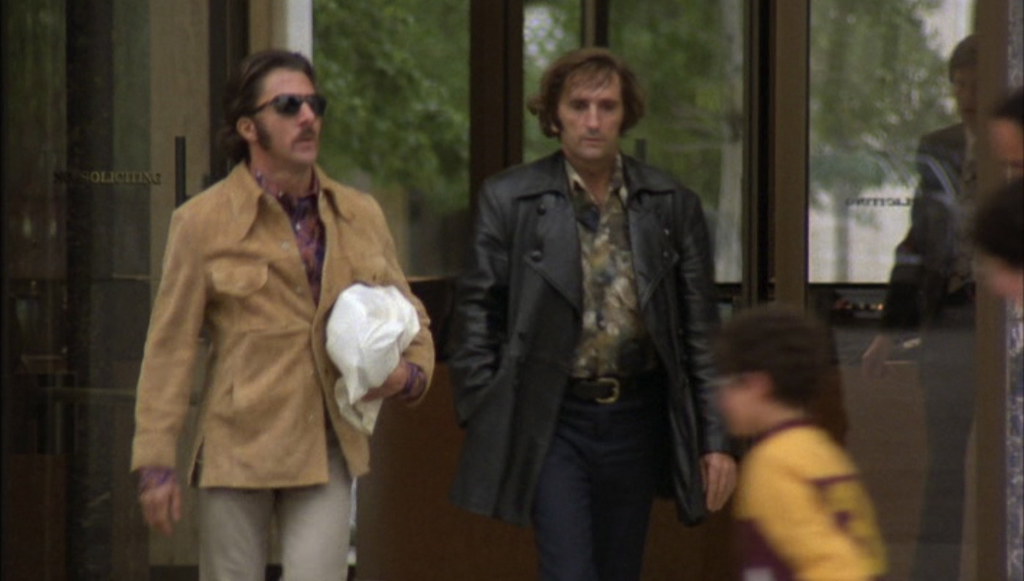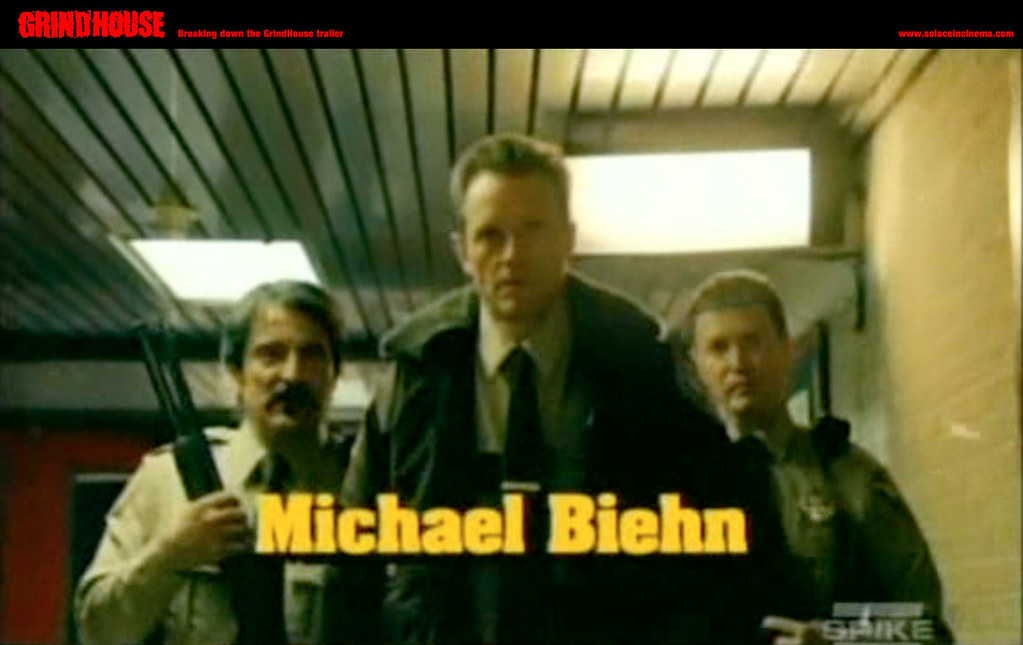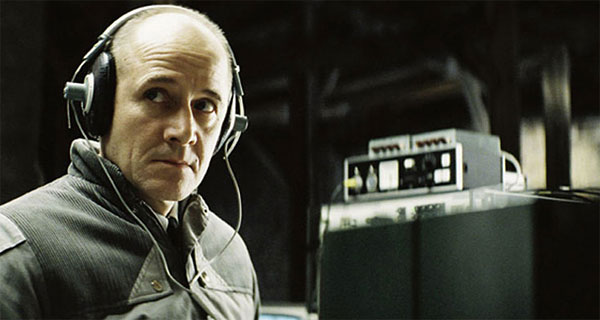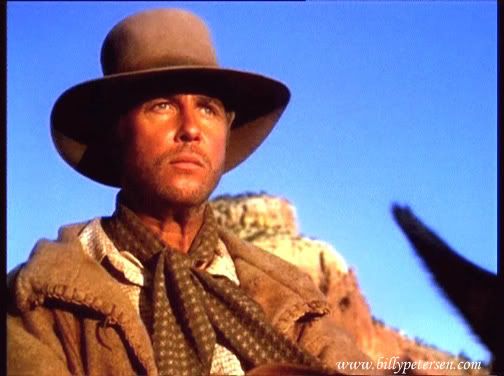
Born in Hollywood, the daughter of the late actor Vic Morrow and veteran screenwriter Barbara Turner (The Company, Pollock), Jennifer Jason Leigh immediately established a reputation as one of the most fearless actresses of her generation. Over the years, Leigh has specialized in playing characters on society's bottom rung—she's played a sex worker three times (Last Exit To Brooklyn, Miami Blues, and Short Cuts) and a junkie twice (Rush, Georgia)—but she's also shown a knack for playing hyper-intelligent women of bygone eras, in The Hudsucker Proxy, Kansas City, and as Dorothy Parker in Mrs. Parker And The Vicious Circle. In 2001, Leigh and her friend Alan Cumming tried their hand at directing with The Anniversary Party, a digital-video project shot over 19 days with an impressive cast list.
Two years ago, Leigh married writer-director Noah Baumbach (The Squid And The Whale), so she had the inside track for a plum role in Baumbach's new film, Margot At The Wedding. Leigh plays Pauline, an emotionally fragile woman whose monstrous sister (Nicole Kidman) threatens her impending marriage. Leigh recently spoke to The A.V. Club about growing up in Hollywood, naturalism versus stylization, and the perils of bringing a role home.
The A.V. Club: With this movie, you had the unique advantage of literally living with the material. What was that like for you, and what sort of influence did you have on the process?
Jennifer Jason Leigh: It was great for me, because by the time we started shooting, I was really, really familiar with the characters. I had seen so many drafts and versions that I knew so many details. I felt like I had been living with them all for a really long time. We talked about it constantly. I'd read the latest draft, and I would tell Noah my thoughts, and we would brainstorm and talk about the characters and things like that.
AVC: When you make a movie, do you usually familiarize yourself with the other characters in the script?
JJL: No, I'm just dealing with my own character that I am playing.
AVC: And you were always going to play this role from the beginning?
JJL: No. Not necessarily. I didn't know if I was going to be even in it, in the beginning. I was hoping I'd be in it, but I wasn't sure. And then one day, I don't remember quite when in the process, Noah told me that he wanted me to play Pauline. But Noah doesn't like to write with actors in mind, so I wasn't sure.
AVC: Did you feel like that was going to be the role for you?
JJL: I was trying not to read it with any kind of… I was really just trying to read it as a piece on its own, without thinking about it as an actress. I was looking at as the director's script, trying to see it as someone reading and helping Noah, and my thoughts about it, as opposed to scanning it for a role for me. But I was really thrilled when he wanted me to play Pauline.
AVC: The sisters you and Nicole Kidman play are estranged, but they know each other extremely well, and they fall into what feels like a familiar dynamic. Is that all there in the writing, or did you and Kidman have to work beforehand to give that impression of familiarity?
JJL: I think it's a combination. We had two weeks' rehearsal, which was incredibly helpful, and I think there's something that felt very familial about her to me. And probably vice versa. Like, I really did believe we were sisters and we bonded very quickly, and it was very easy to believe we had that history and all that stuff between us. It was effortless, kind of. Also, the script is very layered, so it was easy to just believe it.
AVC: Do the two of you have a fairly similar process?
JJL: I think so, even though it was kind of unspoken, but I felt it, you know? I felt like our approach to acting is very similar.
AVC: The performances in Margot are very naturalistic and sort of de-glammed. What goes into not making it look like you're acting? How can you be natural as a character who's not you?
JJL: Well, that's an interesting question, and I think Noah has a lot to do with that, because we live together and he knows me so well. He knows my qualities in real life. So he knows what I'm like when I'm really laughing. And he knows what I'm like when I'm really upset or angry… he just knows all the shades of me, so that's what he wanted. Even though I'm nothing like Pauline, he wanted me to bring myself to it. And so it's really very naturalistic, probably because it's the closest to me, in a sense, even though she's nothing like me.
AVC: To look on the other side of the equation, you've also done very stylized roles, like the ones in Mrs. Parker And The Vicious Circle, The Hudsucker Proxy, and Kansas City. How do you strike that balance between giving a stylized performance while still connecting with the character?
JJL: I have a lot of fun making that connection. It takes a lot of vocal work and a different kind of walk and some particular mannerisms. You try to find the internal life, but a lot of it is creating it through physical behavior and figuring out the voice when you create as much of a past as you would in a naturalistic piece. But it's fun, because it's like you're learning something, learning some kind of physical skill.
AVC: Is it tough to make that connection between the things you see on the outside, mannerisms and manners of speaking, and what's going on inside?
JJL: Sometimes it's tough and sometimes it's not. Sometimes the work can get in the way and you give a less-good performance, and sometimes it doesn't and you can really get to the heart of something. And all the other stuff is just interesting and adds another layer to your performance. It helps you find the reality. Because you're not just playing yourself, you know? That would be kind of boring.
AVC: Is that one of the things you like about acting, to be that removed from who you are?
JJL: I like to investigate all different kinds of people, I guess, and find out what makes them who they are, and try to be honest in the portrayal, and truthful, and find out how to understand that person, how to communicate that person's experience.
AVC: You're pretty deeply invested in the roles that you play. Does a character tend to bleed into your life when the cameras aren't rolling, or can you easily detach yourself from the characters you're playing?
JJL: No. Even when you think you can, you don't. Because you're spending so much time trying to realize this person and make them real that they do infect you, in a way. And you do take them home and live with them, even if you think you're turning the character off. But in order to pull off a role convincingly, you wind up thinking about that person all the time, and it does sort of creep into you. And then there are things that you'll respond to, or react to in a very different way than you would normally. It usually takes about two and a half weeks after you're done filming where you kind of return to yourself again. It's subtle.
AVC: Can it get unhealthy?
JJL: Nah, I don't think so. I've never done anything that I felt was crossing the line for me. But everybody has to make that decision individually. Like, I've never shot heroin to play a heroin addict. I've never turned a trick to play a prostitute. Whatever. You draw the line where you feel it could be harmful.
AVC: But you have lost weight for a couple of roles.
JJL: Yeah, but not to a degree where I couldn't gain it back or something. Not to where it was life-threatening.
AVC: You grew up in Hollywood. What was it like having actors and directors around all the time? Were you certain from an early age that you wanted to act rather than write or direct?
JJL: Yeah. I loved acting as a kid because I was kind of shy, so it brought me out of myself. Acting for kids is like playing house, you know? But growing up in Hollywood, it just made it seem possible. It wasn't like some idea of going to Hollywood; it was in my backyard. I lived two blocks from Grauman's Chinese Theatre growing up. It was what people did. It's an industry town. So it wasn't some far-off fantasy, it was like "Oh yeah, when you grow up, you do this because that's what people do here." [Laughs.]
AVC: How does that affect your perspective on the world? Does that environment ever seem insular?
JJL: Well no, because that's how I grew up. It didn't feel insular to me. Children accept their world as the world. I grew up like kids that I went to school with. Their parents were either shrinks or actors, you know? [Laughs.]
AVC: When you research a role, what sorts of things are you looking for that might help your performance? How long does it generally take you to prepare?
JJL: I like as much time as I can get and I'll do whatever I think is helpful. Sometimes it's practical research, meaning if I had to write shorthand, I'd learn how to write shorthand. Or if I have to know how to dance a certain way, I would learn that. And then there's just research of talking to people similar to the characters I'm playing. And there's stuff that I just feel is inspiring, whether it be music or a painting or a photograph. I've used a lot of Nan Goldin's photos in the past to inspire me. I use certain paintings and pieces of music.
AVC: In the past, you've expressed a particular affinity for working with Robert Altman and Alan Rudolph. What sort of environment do they create that helps you do your best work?
JJL: I think Altman could see things in me that I didn't know I possessed, which is really exciting. He also instilled a tremendous amount of confidence, because he would say things like, "These are the bare bones, but I want you to go fill it out. You find the character. You bring it to me. You write whatever you want." And if you had an idea, he wouldn't want to hear about it. He's want you to show it to him. So there's so much confidence and freedom that comes from that way of doing things. And he and Rudolph make the set the place to be. It's fun. It's a kind of creative freedom that's really inspiring. [Altman] loved actors so much. Everyone came to dailies—this is when dailies used to be projected—and there would be food and wine. You had to come. It was like required reading or something. [Laughs.] If you didn't come, you were in trouble. But it was so much fun. They could be endlessly long, the dailies, but you know. He was a great mentor for me, really.
AVC: Are you less gratified by films where you're given less room to maneuver?
JJL: Not necessarily. Because I love a great script, and I love to respect it, and I love to try to give a director what he needs and wants, especially having directed now. [Laughs.] I'm much more open to try to give him what he wants and figure it out. I like working with directors I respect and admire, obviously. And everybody has their own way.
AVC: How has your relationship with your craft changed over time? Do you do things differently now than you did, say, 20 years ago?
JJL: Probably. In some ways, you're always redefining it and figuring it out, but in some ways, I almost feel I'm going back to what I was doing 20 years ago. What Noah gave me on this film, I'd like to experiment with more. It was really kind of exciting to me, and I think it's sort of how I initially began.
AVC: How do you mean?
JJL: There was a kind of purity with Margot that I had in Fast Times At Ridgemont High, just kind of being young, in a way. And I was nothing like that girl in Fast Times either, though I did get a job at Perry's Pizza, and I did do this "research" or whatever I was doing, but I was using a lot of myself, because I didn't have a lot else to draw on. I wasn't out interviewing lots of people, and I wasn't doing that kind of stuff. And there's a kind of purity to that that I'm kind of interested in again. To disappear, but also not disappear, in a way.
AVC: To bring more of yourself to a role?
JJL: Yeah. Even if the role is very far away from me, to try and make it as nakedly me as possible is an intriguing notion. We'll see. Who knows? The next role I get, I could feel like fucking with some crazy accents and whatever. [Laughs.] But right now what I'm interested in exploring more is doing this kind of work again. It might not even look different to you, or feel different to you, but to me, it was a very different kind of thing.



















